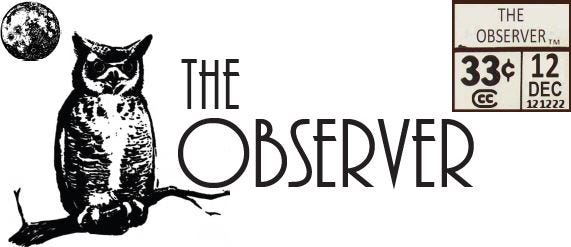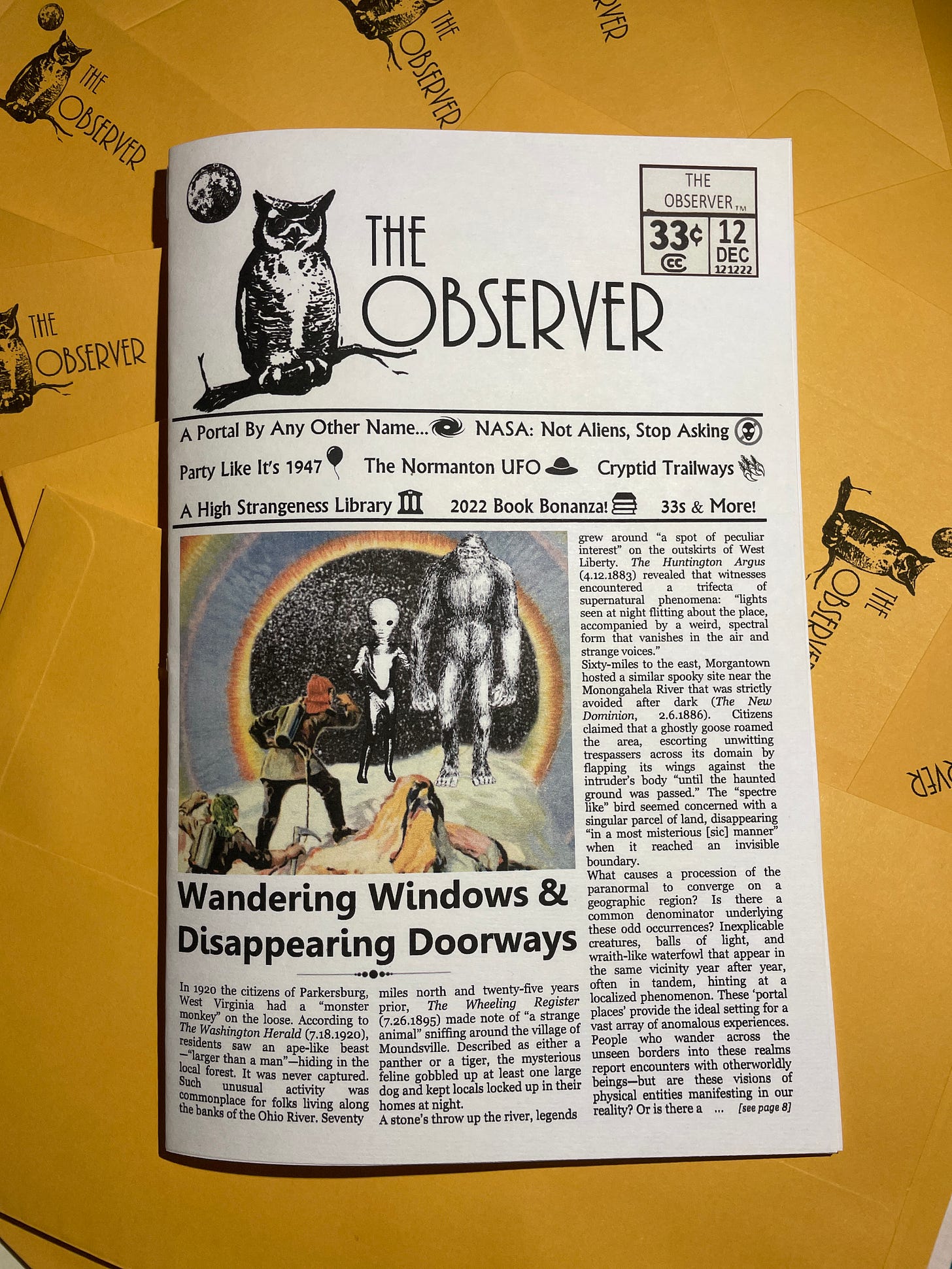The Occult Elite: Anti-Communist Paranoia and Other Ruling-Class Delusions
Michael Barker, 376 pgs., 2022
In The Occult Elite: Anti-Communist Paranoia and Other Ruling-Class Delusions, “politically active Marxist” Michael Barker explains why a preoccupation with the supernatural is a waste of time and counter-productive to the goals of the collective. Furthermore, it plays into the hands of the bourgeois who are responsible for promoting “all manner of occult intrigues” in a coordinated effort to “manipulate popular consciousness.” For someone who’s ostensibly against the circulation of conspiracy theories, Barker comes across as more than a little conspiratorial.
The book argues that the ruling-class tolerate conspiracy theories about them because they inflate their perceived power and abilities in the minds of the working-class. Commoners buy into this mythology and remain subservient, believing that they are merely small cogs in someone else’s large machine. The goal of the elite is to make it difficult for the masses to organize and easier for them to control an ignorant population—instilling a sense of paranoia “serves to cloud the public’s understanding of the roots of their own exploitation.”
Barker writes that people embrace occult subjects “as a rational response to an unusual status quo.” Society looks for diversions from their rank-and-file existence, often finding it in various spiritual movements and esoteric religions. These forms of anti-scientific escapism act as ‘opiates for the masses’ and provide another mechanism for their oppression.
Robert Bigelow and Laurence Rockefeller are cited as examples of rich guys who sponsor paranormal projects while “exploiting” the capitalist system. Instead of seeing them as people with money and an interest in weird topics, Barker insinuates that their motive is to propagate “irrational intrigues” that keep the proletariat dumb and distracted.
He points to isolated incidents within MUFON as evidence of infiltration by the far-right into the world of UFOs—acting as if the organization were an actual representation of the larger community (it’s not). He later refers to George Adamski’s The Flying Saucers Have Landed as “one of the most important publications of the UFO movement,” (it’s not) and introduces astronomer Dr. J. Allen Hynek as a “longstanding occultist,” (the jury’s out on this one). It’s clear from these instances that Barker’s understanding of the ‘UFO movement’ is a bit skewed.
Portraying UFOs as a tool of the ruling elite was a popular line of reasoning in the 1950s for communist regimes across Europe. Ralph Blum documented some examples in Beyond Earth (1974), citing how “the Soviet newspaper Red Star denounced the UFOs as capitalist propaganda.” He goes on to quote the Hungarian government, who proclaimed that “all flying saucer reports originated in the bourgeois countries, where they are invented by the capitalist warmongers with a view to drawing the people’s attention away from their economic difficulties.” Barker would seemingly agree with these positions.
The author blames the present condition of the working-class on “the failures of leadership” within their own organizations, not the machinations of some shadowy ‘New World Order.’
Despite this proclamation, Barker still sounds like a guy who believes in conspiracy theories. There are long-winded warnings about groups like the Club of Rome and the Trilateral Commission, and he fails to recognize just how closely his rants resemble those of the ‘crazy conspiracy theorists’ he disparages.
Instead of Illuminati mind-control or fluoride in the drinking water, he fears the ruling elite are engaged in a different kind of surreptitious plot to profit from the plebs. Their anxieties are the same, but Barker’s are forged on the anvil of class-based politics.
The book is well cited—maybe too well, in fact. There are so many footnotes that it was noteworthy when we came across a page without one. Sometimes whole pages were filled with a continuation of the prior page’s annotation.
Formatting aside, The Occult Elite was an authentic and fresh look at the players who might stand to benefit from a flourishing conspiracy culture and its long-term impact on the public consciousness. The author is unabashed about his political slant, and the book is better because of it.
Diablo Mesa
Douglas Preston & Lincoln Child, 385 pgs., 2022
Diablo Mesa is a fictional tale by authors Douglas Preston & Lincoln Child, a dynamic duo who’ve churned out more than 30 supernatural thrillers since the release of their bestselling novel, The Relic (1995).
Why was this lone work of fiction included in our book list? Mainly due to its ‘ripped-from-the-headlines’ plot that seemed too familiar to ignore.
The story revolves around Lucas Tappan, an “eccentric billionaire” who owns his own private space system company and has a penchant for spending his fortune on UFO hunts. The character is an obvious stand-in for Robert Bigelow, the real-world billionaire who owns a private space system company and funnels his money into investigating paranormal phenomena. In the book, the fictional Bigelow hires archaeologist Nora Kelly to lead an excavation at the alleged Roswell UFO crash site in hopes of unearthing extraterrestrial artifacts.
Kelly is initially apprehensive about digging for alien technology in light of the damage it would do to her professional reputation and standing within academia:
“If I do this, I'll be known forever as the UFO archaeologist. I’ll never be taken seriously again. How do I reconcile that?”
We suggest booking a string of guest-appearances speculating about ETs on various History or Discovery Channel shows.
Familiar tropes abound. Microtektites are discovered—small particles of melted rock that are a telltale sign of something from outer space impacting the soil. “Element 126” is detected—a nod to Bob Lazar’s UFO fuel source of choice, Element 115. Deep Underground Military Bases (DUMBs) are explored; and instead of the ‘cube within sphere’ UFOs that have been reported by Navy pilots, the book features a sphere within a cube. During one exchange, Nora is even corrected after using the term ‘UFO’:
“UAP,” said Toth. “Unidentified Aerial Phenomena: that's what the DoD is calling them these days. Less stigma.”
You get the idea. The authors insert enough UFO lore into their novel to keep it tethered to real world scenarios.
When Tappan provides his reasons for pursuing ‘out there’ topics like UFOs, we couldn’t help but wonder how closely his motivations might resemble those of his real-life counterpart:
“I just wonder: Why this? There are so many things you could be doing with your money. Why UFOs?”
“Meaning, it seems eccentric to you?”
“Frankly, yes.”
“Fair enough.” He took a sip of his drink. “Tell me: What's the greatest discovery we human beings could make? Even greater, say, than finding a lost civilization? Greater than the discovery of fire, or the wheel!” He paused dramatically. “It would be to learn that we’re not alone. To learn there are other intelligent species out there.”
Later in the book, Tappan restates this point succinctly:
“Denying the existence of things beyond our knowledge is as dangerous as promoting them.”
Preston & Child did a bit of ufological research before producing Diablo Mesa as evidenced by one character’s Roswell-rundown:
“In the late seventies, interest in UFOs went through the roof and people began to focus once again on the Roswell incident. The two contradictory press releases gave the impression of a government cover-up, and that, of course, fired up everyone’s imagination… There were also plenty of opportunists who leapt onto the story looking to make a buck. In 1980, a book called The Roswell Incident came out, and that really set the story on fire. It claimed there had been a massive conspiracy to cover up the fact that a UFO had crashed and that alien bodies and technology had been recovered. More books followed, including one by a retired lieutenant colonel named Philip Corso. In his book, Corso actually claimed to have been in charge of a storehouse of alien artifacts and bodies recovered from the crash. He said that some of the key inventions of the modern age—lasers, computer chips, fiber optics—had come from reverse engineering the alien technology.” He shook his head. “People just ate it up. The thing is, they were right on one level: there was a government cover up. Only it wasn’t of a UFO crash.”
While the authors never pretend to be UFO researchers, they weave an entertaining plot using threads of the Roswell mythology. The book ends abruptly, but the story’s loose ends are mostly resolved, making for a satisfying read that is equal parts entertaining and superficial. Readers are ultimately left to consider if first contact will be hostile or benevolent—and if humans will recognize the difference when we encounter it.













Any fiction book recommendations similar to Diablo Mesa (other than more Preston & Child)? Anything in the UFO/alien vein but more grounded in 'reality' than futuristic science fiction.